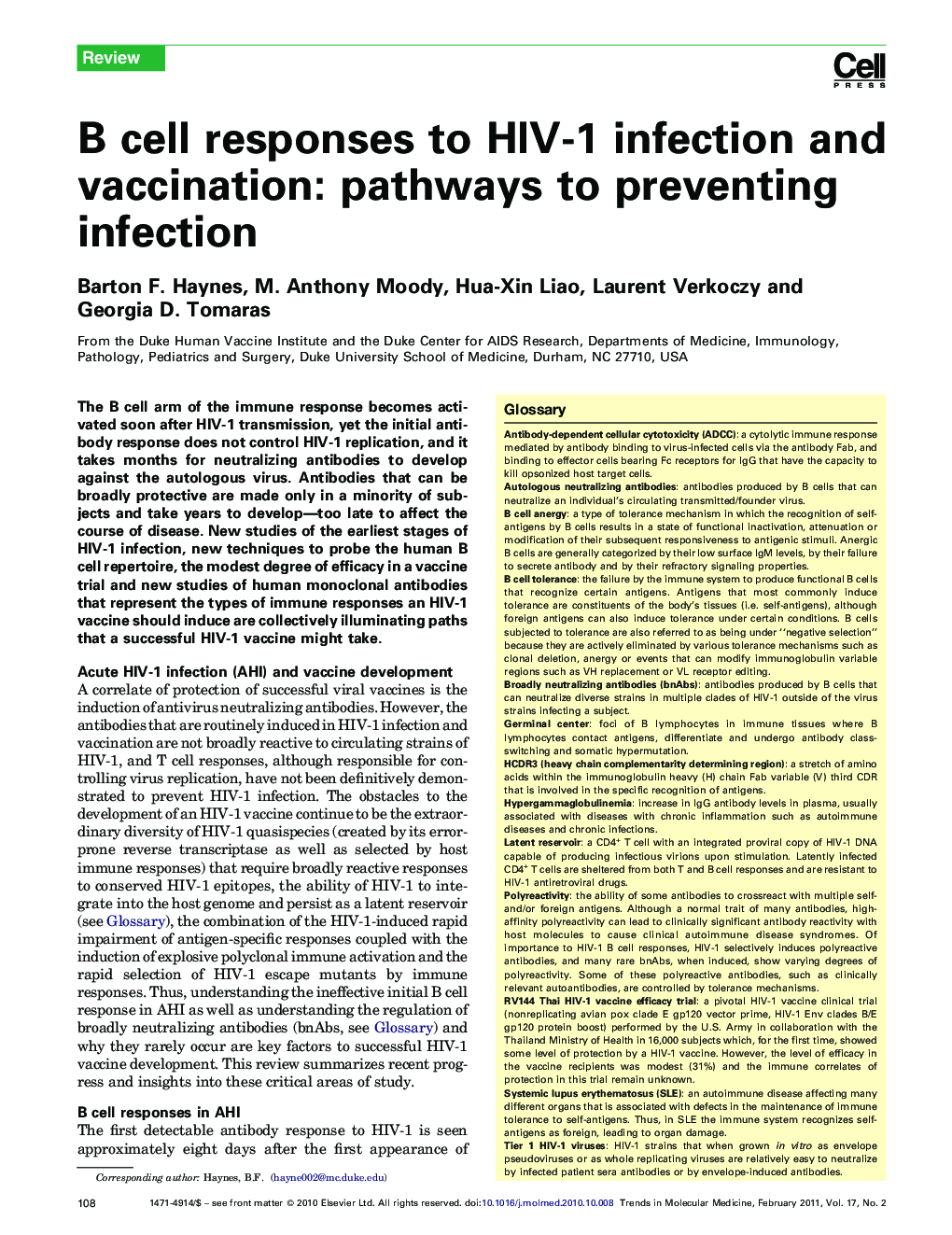| Article ID | Journal | Published Year | Pages | File Type |
|---|---|---|---|---|
| 2838973 | Trends in Molecular Medicine | 2011 | 9 Pages |
The B cell arm of the immune response becomes activated soon after HIV-1 transmission, yet the initial antibody response does not control HIV-1 replication, and it takes months for neutralizing antibodies to develop against the autologous virus. Antibodies that can be broadly protective are made only in a minority of subjects and take years to develop—too late to affect the course of disease. New studies of the earliest stages of HIV-1 infection, new techniques to probe the human B cell repertoire, the modest degree of efficacy in a vaccine trial and new studies of human monoclonal antibodies that represent the types of immune responses an HIV-1 vaccine should induce are collectively illuminating paths that a successful HIV-1 vaccine might take.
